As more independent bakeries ditch brick-and-mortar stores, setting up shop on social media platforms instead, Joyce Yip investigates what makes them click with thousands of Gen-Z followers.
 Tomato Bakery’s intricately designed, anime and cartoon characters, hand-piped on cakes, were an instant hit, earning the enterprise, which operates solely via Instagram, 11,000 followers. (PHOTO PROVIDED TO CHINA DAILY)
Tomato Bakery’s intricately designed, anime and cartoon characters, hand-piped on cakes, were an instant hit, earning the enterprise, which operates solely via Instagram, 11,000 followers. (PHOTO PROVIDED TO CHINA DAILY)
When Tomato Fan couldn’t find the birthday cake she wanted after combing the streets of Hong Kong, she started her own bakery. Back then, she didn’t even have an oven.
Three years later, Fan and her boyfriend are running a full-fledged baking workshop in Kwun Tong. Unlike traditional brick-and-mortar shops, Tomato Bakery doesn’t cater to walk-in customers. Instead, orders are placed directly through its Instagram account.
Today, Tomato Bakery boasts more than 11,000 followers. Fan thinks Tomato’s success is owed to its intricately designed anime characters, hand-piped on cake surfaces. They are a hit with the bakery’s Gen-Z followers, who can also appreciate the relatively affordable price tags — a 4-inch (10-centimeter) cake starts at HK$410 ($52.30). The couple produces 11 made-to-order cakes a day on average and up to 30 when demand is high.
“We’ve designed more than 100 variations of Anya — some for customers, some just to try out newer versions,” says Fan, referring to the pink-haired character from the Japanese anime series Spy x Family, who has been a hit with her clientele. However, being handcrafted, no two images are ever totally alike, and customers who want their order to be an exact replica of the anime character’s image on Tomato Bakery’s online catalogue “shouldn’t be ordering from us,” the young baker warns.
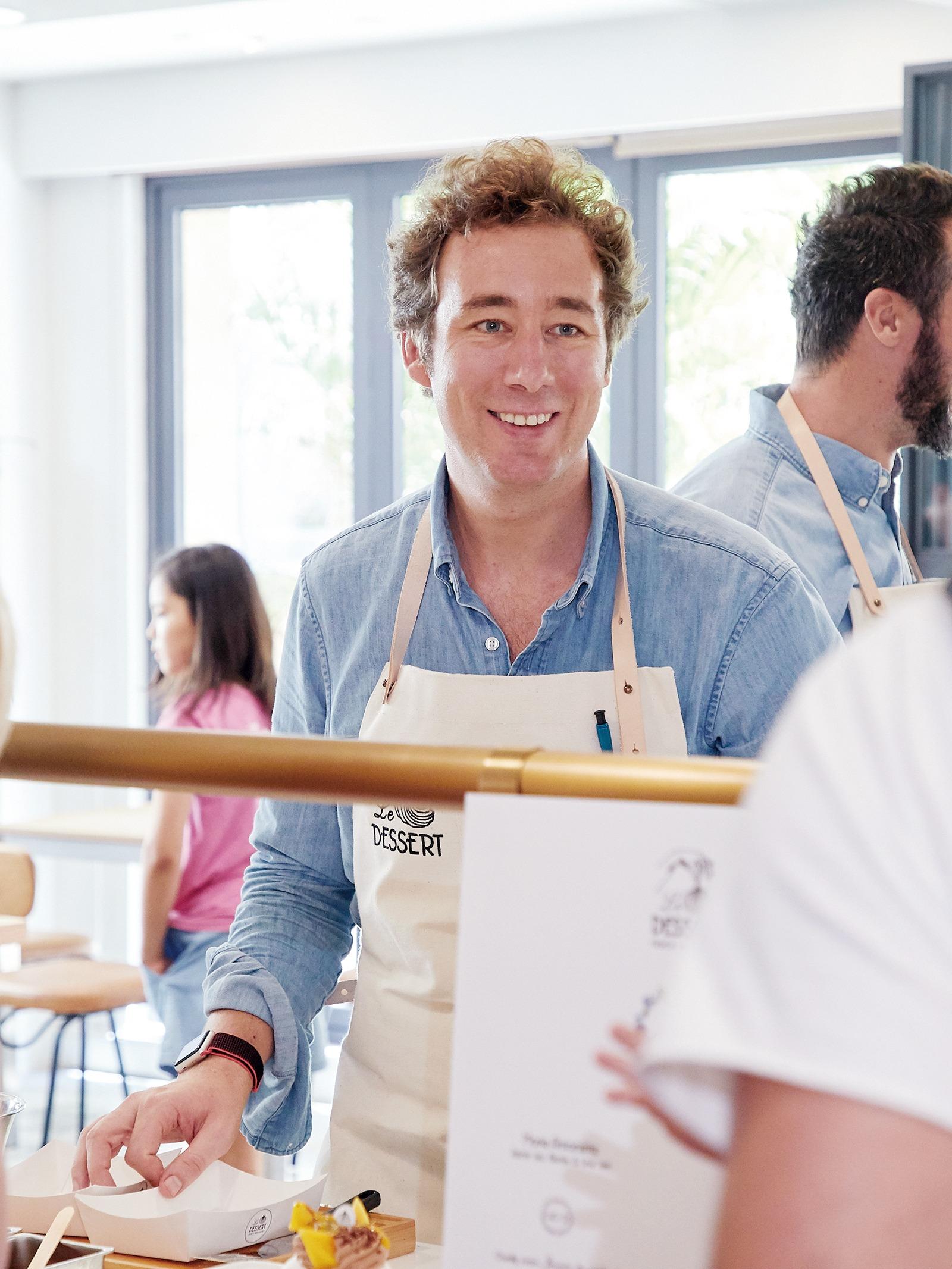 Starting life as pop-up stores, Le Dessert, co-founded by Julien de Preaumont, went fully online. (PHOTO PROVIDED TO CHINA DAILY)
Starting life as pop-up stores, Le Dessert, co-founded by Julien de Preaumont, went fully online. (PHOTO PROVIDED TO CHINA DAILY)
“This is the reason why we keep our prices affordable,” she goes on to add. “If we charge more, customer expectations will go up. Baking is my hobby, and I want to keep it that way.”
Such a free-spirited attitude is common among owners of Instagram bakeries, whose numbers are on the rise in Hong Kong. Months of social unrest in 2019 followed by three years of living under strict social-distancing rules and travel bans gave people like Fan time to hone their skills and devise a game plan to follow their passions. The result is an array of new boutique enterprises celebrating handcrafted baked products made with love and marketed exclusively through social media platforms.
By not having a physical store, the baker-owners are spared the burden of Hong Kong’s sky-high property rents. Freedom from such worries helps them to get more experimental with choosing ingredients, trying out new recipes and designs as well as finding creative ways of running the business. Instagram bakers often share their backstories on their social media pages. This could be a bonus for the customers, who get to serve cake slices with a topping of anecdotes — all the more charming when it involves a young, local couple trying to keep their dream alive.
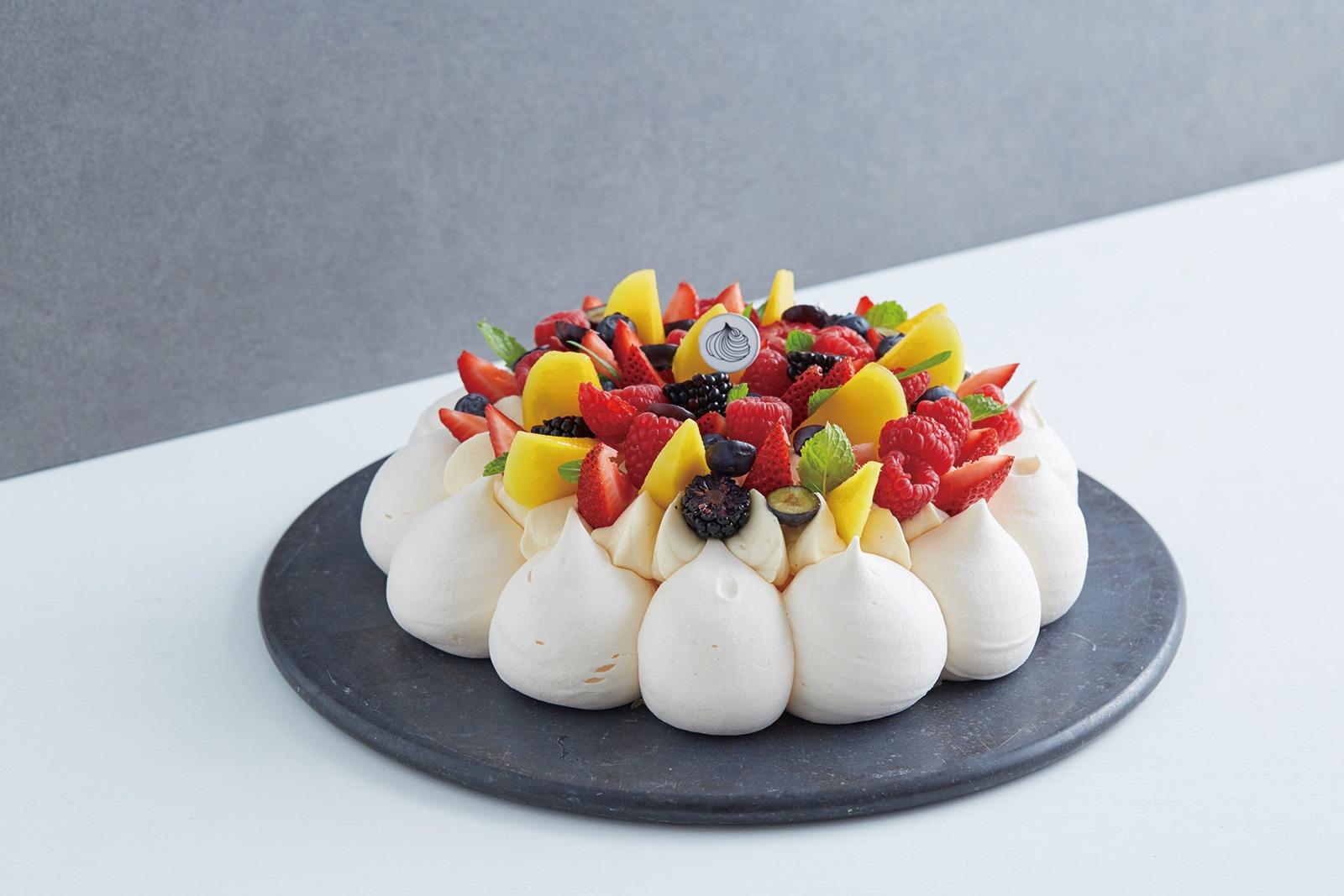 Julien de Preaumont is active on social media, which he uses to send updates about products to his followers. (PHOTO PROVIDED TO CHINA DAILY)
Julien de Preaumont is active on social media, which he uses to send updates about products to his followers. (PHOTO PROVIDED TO CHINA DAILY)
By popular demand
Instagram bakeries aren’t confined solely to the virtual world. Since 2021, Nan Fung Place in Sheung Wan has served as a venue for annual food fairs in which only independently owned shops, including Instagram bakeries, can participate. Amanda Lee, Nan Fung Development’s deputy general manager of marketing and communications, says that the event is usually a total sellout, sometimes even before halftime.
“Each business gets its own stall. Space is limited so, understandably, they can’t have a lot of stock on site. Sometimes we have vendors selling up to 400 cake slices in the first two hours of a four-hour event,” Lee says. Customers leave work early or spend their lunchtime lining up just to get their hands on treats they’ve seen and liked on an Instagram page.
Instagram bakery Moono’s founder, Tina Lam, joined Nan Fung Place’s pistachio-themed food fair in June for the first time. Lam’s business started small, offering only Christmas cookies when she started her digital shop in 2018. By 2021, this self-taught baker was selling a range of vegan pastries — mille-feuilles, macaroons, roll cakes and cream cakes — at a pop-up at K11 Musea.
Lam says her Instagram page has a more-creative flair than her pop-up store. “Unlike the physical shops where I may get random passersby or tourists, my Instagram customers sign up because they already like my products or my ethos. They are more interested in reading my stories on design, ingredient selection and baking processes,” she says.
Many business owners see Instagram bakeries as steppingstones to get to the real deal. And Lam is no exception.
“All bakers want a brick-and-mortar shop or cafe, but because of limitations like (unaffordable) rent, we have no choice but to rely on social media,” she says.
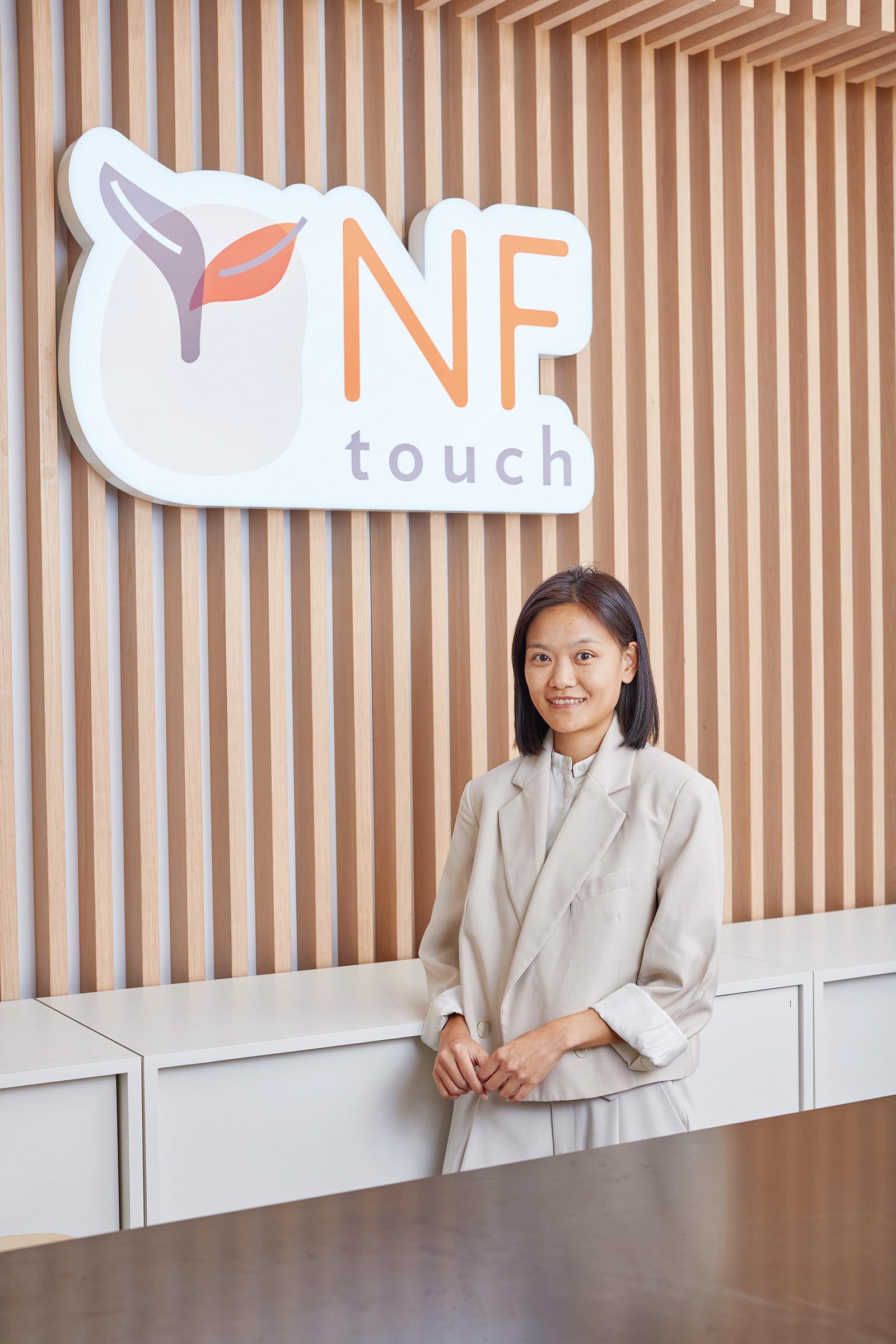 Nan Fung Development’s Amanda Lee says their food fairs, open only to independently owned shops, including Instagram entrepreneurs, are a total sell-out. (PHOTO PROVIDED TO CHINA DAILY)
Nan Fung Development’s Amanda Lee says their food fairs, open only to independently owned shops, including Instagram entrepreneurs, are a total sell-out. (PHOTO PROVIDED TO CHINA DAILY)
Online all the way
Julien de Preaumont, co-founder of French patisserie Le Dessert, went the other way — from physical stores to an online-only business. In 2019, he invested HK$1 million to open an online shop alongside five pop-ups in shopping malls in Admiralty, Central, Tsim Sha Tsui and Tai Koo, with varying lengths of tenancy. By mid-2022, the pandemic had forced him to shut down the physical stores, and his business was reduced to digital-only. Luckily, by that time he had acquired a dedicated following of around 10,000 online customers.
Julien de Preaumont says his digital shop remains substantially more profitable than its physical counterparts despite fewer orders. Online orders average HK$500 more than physical retail, as customers go for bigger and more elaborately decorated cakes — often to meet the free-delivery threshold. By comparison, the majority of customers visiting his physical stores were passersby, interested in smaller products.
“During the pandemic, we were losing money in our retail shops. Foot traffic was low, and we had to match shopping malls’ long opening hours. Who would buy a cake at 10 pm? Having a shop also meant we had to spend a lot of energy making sure the space looked perfect, not to mention organizing the staffing,” adds the seasoned baker.
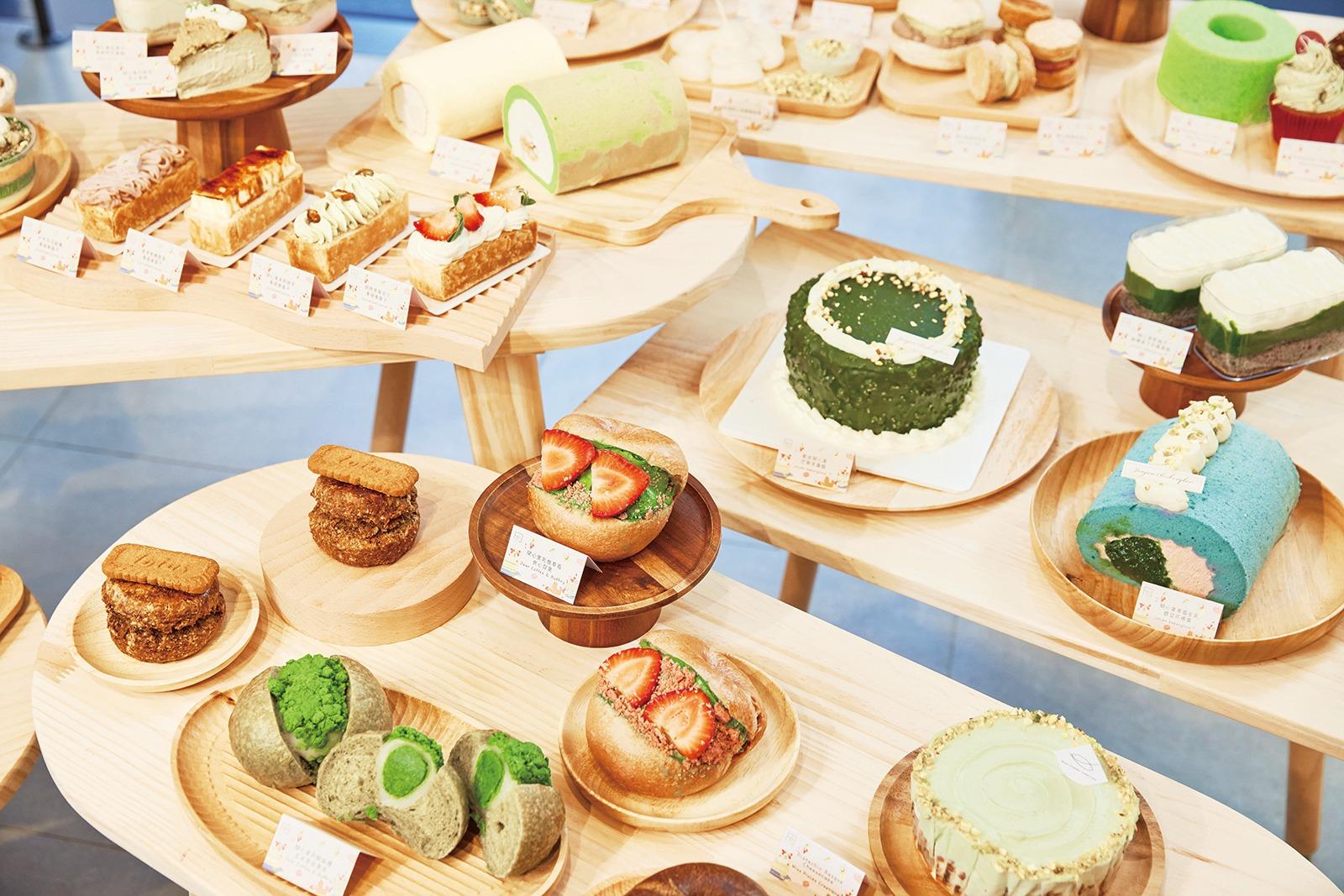 A section of the pistachio-themed food fair, held at Nan Fung Place in June. (PHOTO PROVIDED TO CHINA DAILY)
A section of the pistachio-themed food fair, held at Nan Fung Place in June. (PHOTO PROVIDED TO CHINA DAILY)
Currently, Le Dessert takes orders via its website or WhatsApp and offers pick up at its kitchen in Chai Wan. The company uses a dedicated fleet of trucks for deliveries. Julien de Preaumont keeps in touch with customers by sending out newsletters and WhatsApp messages with ample photos and videos about new products and promotions on a regular basis.
He is not worried about competition from Instagram bakeries. His own establishment, Julien de Preaumont feels, is better equipped, logistically, in terms of organizing timely pickups and delivery. Besides, he adds, home-based businesses don’t often have the resources to ensure quality control befitting big celebrations.
Cherry Wong, who used to be a food-and-beverage journalist in Hong Kong, agrees that Instagram bakeries are disadvantaged in terms of the narrow pickup windows they are often able to offer but hastens to add that a loyal customer will find a way of working around such issues. What she digs about Instagram bakeries is the wide range of flavors to choose from. There is also a refreshing creativity and seasonality about their products, which she doesn’t often find in more widely known, physical confectionery stores.
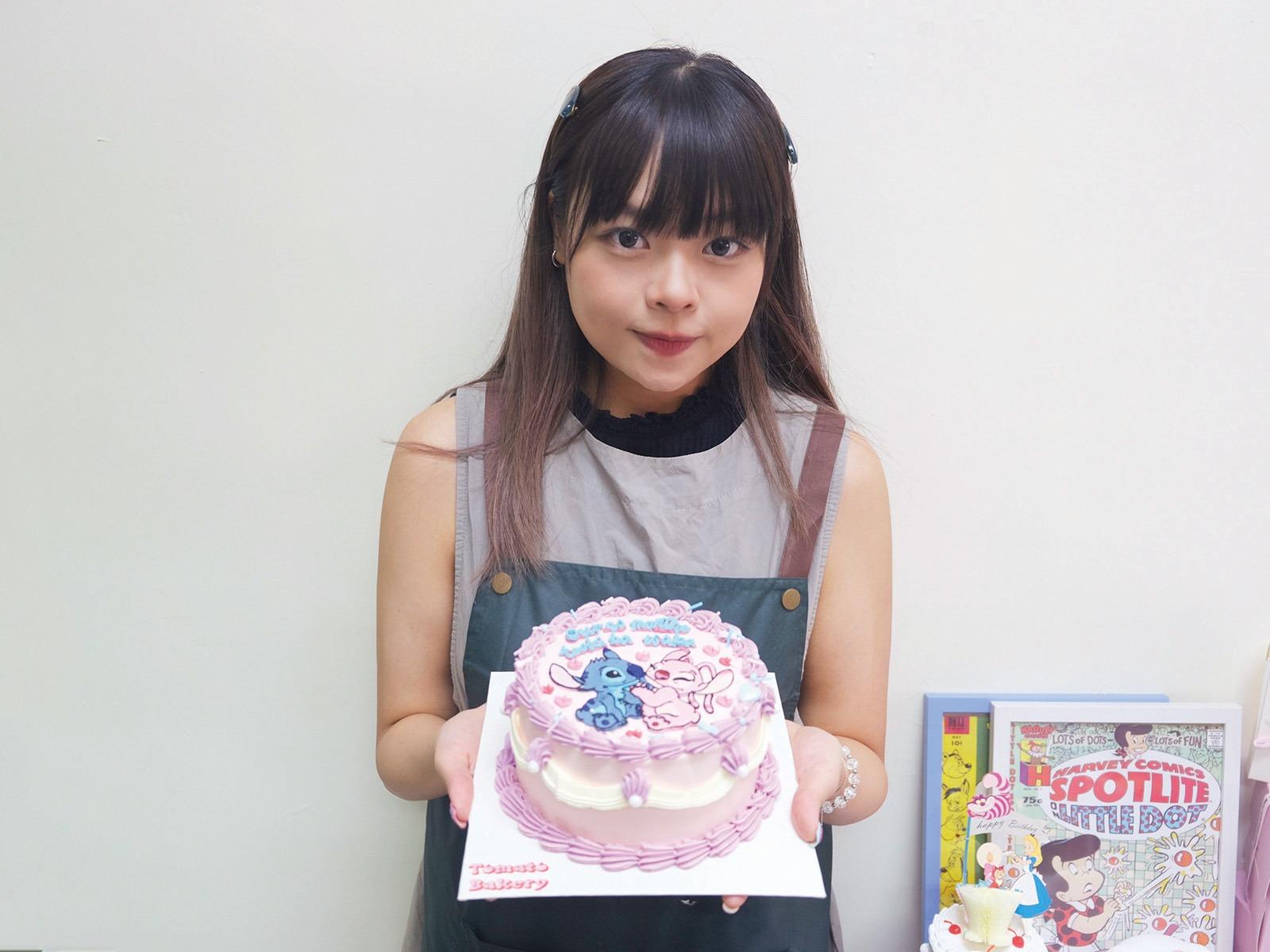 Instagram entrepreneur Tomato Fan runs a successful online cake shop but sees baking as more of a hobby than a full-time occupation. (PHOTO PROVIDED TO CHINA DAILY)
Instagram entrepreneur Tomato Fan runs a successful online cake shop but sees baking as more of a hobby than a full-time occupation. (PHOTO PROVIDED TO CHINA DAILY)
What’s new and fresh today might soon be common and boring, when a hit formula is copied and mass produced by others in the business. An example would be the now-ubiquitous cakes and pies made with mochi — a glutinous Japanese rice cake. Wong points out that it was Instagram bakeries like Mochiffon and Moshimochi, which had a pickup point only in Lai Chi Kok until a year ago, who introduced the idea to the market, starting off a widely followed trend.
“Since online shops can make their products in smaller batches, they are more willing to put out seasonal and fun products. They are a healthy competition to bakeries that can afford the rent,” Wong says.
“I usually select bakeries based on how far the pick-up location is from the venue where I’m hosting. Of course, if I were given a tight deadline, I won’t mind going to a brick-and-mortar shop instead,” she adds.


